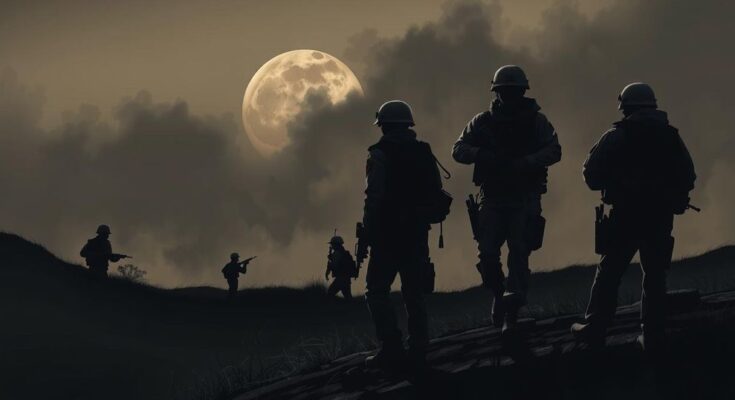The conflict between the RSF and SAF in Sudan has resulted in mass fatalities and the suffering of millions, particularly children. Over 10 million children endure violence, with many being recruited as child soldiers. This article outlines the crisis of child recruitment in the region, driven by poverty, coercion, and cultural practices, while emphasizing the need for international action to protect and rehabilitate these vulnerable individuals.
The conflict between the Rapid Support Forces (RSF) and the Sudanese Armed Forces (SAF) in Sudan, which began in April 2023, has resulted in over 60,000 fatalities and displaced millions. Presently, more than 30 million individuals in Sudan are in dire need of humanitarian assistance. This ongoing political turmoil has precipitated a grave crisis for child protection, with over 10 million children being exposed to violence amid the chaos, as SAF and RSF conduct indiscriminate attacks on civilians.
Children in Sudan have suffered immensely, witnessing the death of relatives, home destruction, and community massacres. Tragically, over 200 children, including those as young as one year old, have fallen victim to sexual violence. The humanitarian disaster has rendered children vulnerable to recruitment by armed factions and criminal gangs, exacerbating their plight amidst the devastating conflict.
A child soldier is defined as any person under the age of 18 who is recruited by an armed group to participate in conflict. Both the RSF and SAF have engaged in child recruitment, capturing disturbing footage that has surfaced on social media. Siobhán Mullaly, a UN Special Rapporteur, noted that the RSF specifically targets destitute and unaccompanied children from Khartoum’s outskirts, as well as those belonging to Arab tribes in Darfur and West Kordofan. Disturbingly, more than 600 RSF child soldiers were reportedly killed or injured during fighting in Khartoum in August 2023.
The recruitment of children into armed groups in Sudan is driven by multiple factors, including extreme poverty and the coercion of families. Parental desperation may lead families to view military service as a form of employment, sometimes pushing their children towards militias. Additionally, newly recruited RSF members are incentivized with basic necessities, such as stolen food and aid.
Local leadership plays a critical role in facilitating child recruitment, as they often act on the behest of RSF commanders. Cultural and traditional practices, such as the faza’a tradition, further perpetuate the cycle of armed conflict by enabling tribal leaders to mobilize children to partake in combat.
The ramifications of child soldier recruitment are profoundly damaging. These children face heightened risks of severe physical and psychological trauma, resulting in various emotional scars and behavioral issues. Legally, the recruitment of children is heavily condemned; various international treaties classify it as a grave violation of human rights. Both the UN Human Rights Council and the Rome Statute regard the enlistment of children by armed forces as war crimes.
Despite Sudan’s adherence to international conventions that prohibit child soldier recruitment, including the Optional Protocol to the Convention on the Rights of the Child, violations persist. The government, alongside the RSF, has engaged in gross human rights abuses by actively recruiting minors.
Genocide Watch calls for urgent international action, urging the UN Security Council to establish a Commission of Inquiry to investigate the crimes in Sudan. They insist on the necessity for all conflict parties to protect humanitarian personnel and resources. Additionally, there is a pressing need for international assistance to reintegrate former child soldiers into their communities and provide essential educational opportunities. Comprehensive and sensitive rehabilitation programs must also be developed to address the unique needs of these children and survivors of sexual violence. A substantial UN/AU peacekeeping contingent is advised to restore stability and halt these crimes against humanity.
In summary, the recruitment of child soldiers in Sudan amid the ongoing conflict poses a significant humanitarian crisis. The perilous conditions and recruitment practices employed by armed forces underscore the need for urgent international intervention. Legal frameworks prohibiting such recruitment exist, yet their enforcement remains inadequate. The appeals from Genocide Watch highlight the critical need for comprehensive measures to protect, rehabilitate, and reintegrate affected children and to restore peace in the region.
Original Source: www.genocidewatch.com




